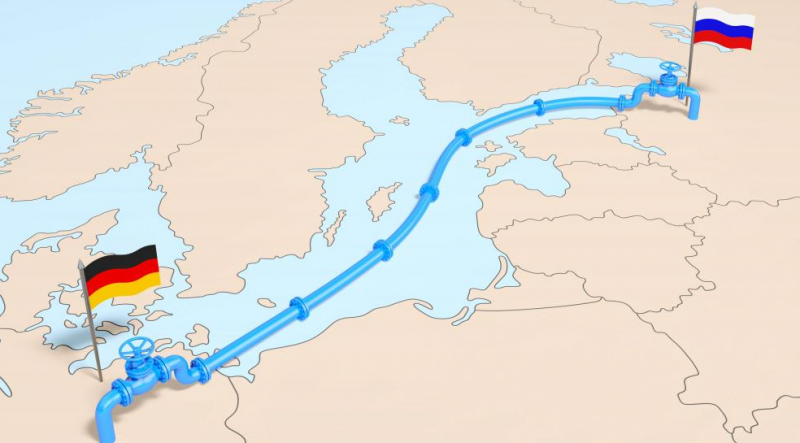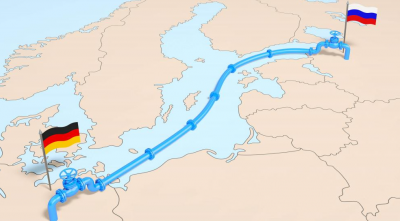Nord Stream 2 is a new pipeline for exporting Russian gas to Europe via the Baltic Sea, following the successful construction and operation of the first pipeline of the same name in 2011. Nord Stream 2 was built along the same route as the first line, connecting Russia to northern Germany and from there to the rest of Western Europe through an existing pipeline network. The pipeline, completed in September 2021, extends 1,200 kilometers under the water and is capable of transporting 55 billion cubic meters of gas annually, effectively doubling the amount of Russian gas supplied to Europe upon its commissioning.
The main contributor to the Nord Stream 2 pipeline is Gazprom, which financed 50% of the project, alongside five European companies including Dutch Shell and Austrian OMV, who will collectively fund the remaining half of the project's costs. The construction cost is estimated at 11 billion dollars.
Nord Stream 2 will increase Europe’s dependency on Russian gas, while at the same time ensuring low-cost supplies to Europe amidst diminishing production capacities in several countries, including the Netherlands, due to a lack of investments in the sector over the past years. Before Nord Stream 2, Europe relied on Russia for 35% of its gas needs. Additionally, the pipeline will enhance Russia’s influence in the gas markets as it will allow Russia to cut gas supplies to Eastern Europe, specifically Ukraine, without having to stop gas flows to Western Europe. However, Nord Stream 2 will also grant Russia significant control over European energy resources.
The controversial pipeline has faced delays and opposition from several parties, notably Ukraine, Poland, and Slovakia, which will lose transit fees for gas passing through their territories. There has also been American opposition, arguing that Europe will become a hostage to Russia, leading Washington to implement measures to delay the project, including imposing sanctions on Russia.
In contrast, Germany sees Nord Stream 2 as essential for developing its industries and meeting the country's increasing needs, especially as it relies on Russia for 50% of its gas imports. However, Germany simultaneously emphasizes that it will make efforts to prevent gas cuts to Ukraine and has warned against disrupting the operation of the project in the event of a Russian attack on Ukraine amidst escalating tensions between the two parties.




